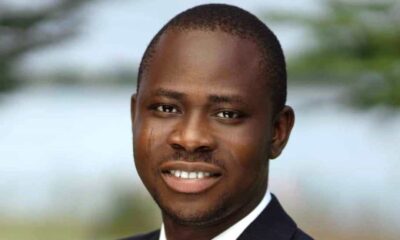Energy
Moove Raises $23 Million Series A Funding to Democratize Vehicle Ownership in Africa


Moove, an African mobility fintech, today announced that it has raised $23 million in Series A funding.
The round was led by Speedinvest and Left Lane Capital, with participation from DCM, Clocktower Technology Ventures, thelatest.ventures, LocalGlobe, Tekton, FJ Labs, Palm Drive Capital, Kora Capital, KAAF Investments, Class 5 Global, and Victoria van Lennep, co-founder of Lendable. Africa specialist, Verod Kepple Africa Ventures, and one of Moove’s existing lenders, Emso Asset Management, also joined the round.
This brings Moove’s total funding to $68.2 million, including $28.2M in equity and $40.0M in debt. Moove is the first investment in Africa for many of its U.S. VC backers, underscoring the opportunity for a platform like Moove to address the continent’s vehicle financing gap.
Operating on a continent with more than a billion people who have limited or no access to vehicle financing – and the lowest per capita vehicle ownership in the world – Moove will use the funding round to build a full-service mobility fintech that democratizes vehicle ownership across Africa.
The market opportunity is vast – Africa is home to 1.3 billion people, with 43 per cent in urban areas and growing, and in 2019 had fewer than 900,000 total new vehicle sales compared to 17 million in the U.S.
Moove embeds its alternative credit-scoring technology onto ride-hailing and e-logistics platforms, which allows access to proprietary performance and revenue analytics of mobility entrepreneurs to underwrite loans. Moove’s model is to provide loans to its customers by selling them new vehicles and financing up to 95 per cent of the purchase within five days of sign up.
Moove customers can choose to pay back their loans over 24, 36, or 48 months, using a percentage of their weekly revenue. All Moove customers sign up to the Moove app to manage all transactions and access other financial products on the platform.
Co-founders Ladi Delano and Jide Odunsi are British-born Nigerians, educated at the London School of Economics, Oxford University and MIT, who have successfully built three other businesses in Africa over the last eight years through their venture studio, Grace Lake Partners.
Ladi is a serial entrepreneur and Jide is a former investment banker at Goldman Sachs and former management consultant at McKinsey. Driven by a common passion to create shared value leveraging their extensive operating experience on the continent, they set out to build Moove to provide Africans with a path to new vehicle ownership while creating new jobs.
“Since commencing operations in Lagos in June 2020, our customers have completed over 700,000 Uber trips in Moove financed vehicles, spanning more than 10.6 million kilometres” said Chisome Anoke, Nigeria country manager for Moove.
“This round of funding will enable us to extend our footprint to more states in Nigeria and to continue serving our customers to meet the evolving needs in urban mobility. Our vision for the future also includes a commitment to reduce our carbon footprint and to increase gender equality within the industry. In doing so, we will be able to create more job opportunities, both within Moove and for our entrepreneurial customer base.”
Moove is Uber’s exclusive vehicle financing and vehicle supply partner in sub-Saharan Africa, with Moove-financed cars having completed more than 850,000 Uber trips covering over 13 million kilometers across the continent to date.
The start-up was initially bootstrapped by its co-founders with seed stage funding from Future Africa, an Africa focused fund led by Iyin Aboyeji, who was a founder at Andela and Flutterwave. The new Series A funding will allow Moove to grow and expand into new markets as well as develop and launch new products and services. The equity raise follows a year of momentum and success for Moove with the launch of three cities and 60% month-on-month growth so far.
“With Ladi and Jide at the helm of a world-class team, and their unique approach to vehicle financing, Moove has quickly established itself as one of the most exciting tech companies in Africa,” said Stefan Klestil, General Partner at Speedinvest. “The company’s expansion to three cities in under 12 months demonstrates the huge demand for vehicle financing in Africa, where just five per cent of new cars are purchased with financing, compared to 92 per cent in Europe.”
“Moove’s technology is fundamentally changing access to mobility and empowering thousands to earn a new source of income,” said Dan Ahrens, Managing Partner at Left Lane Capital. “As we look ahead, the potential for that technology and the Moove team to expand even further is very exciting. They have the opportunity to become a full-service mobility fintech and expand their offerings to insurance and other financial services.”
Moove is a mission-led company that’s committed to giving 100 per cent of mobility entrepreneurs access to affordable credit and ensuring that 50 per cent of its customers are women. It also aims to ensure that at least 60 per cent of the vehicles it finances are electric or hybrid vehicles as part of its commitment to improving road safety and vehicle emissions on Africa’s roads.











